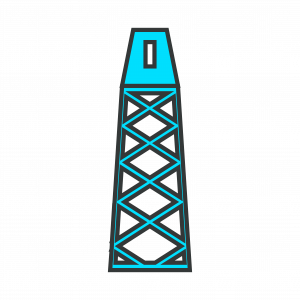
A disciplinary society is a society where one becomes a docile body due to the presence, or threat of, constant surveillance. Disciplinary society was a term first used by Michel Foucault to describe a condition of surveillance. Doolin (1998) argues that the United States of America resembles a disciplinary society due to the large presence of social media, school security resources, and even hospital surveillance (Doolin, 1998). Foucault himself describes disciplinary societies as “Whereas government is also a function of technology: the government of individuals, the government of souls, the government of the self by the self, the government of families, the government of children, and so on” (Rabinow, 1984, p. 256). In a disciplinary society the subjects/people become docile bodies, who begin to internalize surveillance, and no longer resist. This is often times seen in locations such as schools or factories (Boagrd, 1991).
When used together, these tools become the basis for Foucault’s disciplinary society. This society creates a power imbalance, between those executing the surveillance, and those under surveillance. Unlike previous societies, the disciplinary society doesn’t use demonstrations of power to scare their subjects into behaving, it is the presence of observation that scares subjects into submission. Lyon (1994) argues that surveillance has taken a larger role in modern capitalistic society. In such cases, disciplinary societies can also relate to surveillance practices such as Fordism and Taylorism. A disciplinary society can also link to other forms of surveillance commonly found in places such as school and work—including cameras, RFID cards, and the more drastic example of the Panopticon.
A specific example of a disciplinary society in modern times is in schools, due to the fact that society sees young children as easily impressionable (Besley, 2002). For example, schools can remotely activating webcams from school issued laptops to monitor; in one instance a student was accused of improper behavior whole at home and was then shown a photograph that had been taken from the laptop (Keizer, 2010). This is life in a disciplinary society because it is the thought that students are being constantly monitored that encourages them to stay on their best behavior at all times, even if they may not be currently monitored.
References
Besley, T. (2002). Social Education and Mental Hygiene: Foucault, Disciplinary Technologies and the Moral Constitution of Youth. Educational Philosophy and Theory, 34(4). doi: 10.1080/0013185022000011835
Bogard, W. (1991). Discipline and Deterrence: Rethinking Foucault on the Question of Power in Contemporary Society. Social Science Journal, 28(3).
Doolin, B. (1998). Information technology as disciplinary technology: Being critical in interpretive research on information systems. Journal of Information Technology, 13 (4).
Foucault, M. (1977). Discipline and Punish. (Alan Sheridan, Trans.). France: Gallimard.
Keizer, G. (2010). Pennsylvania schools spying on students using laptop webcams, claims lawsuit. Computer World. Retrieved from https://www.computerworld.com/article/2521075/windows-pcs/pennsylvania-schools-spying-on-students-using-laptop-webcams–claims- lawsuit.html
Lyon, D. (1994). Electronic eye: The rise of surveillance society. Minneapolis, MN: University of Minnesota Press .
Rabinow, P. (1984). The Foucault reader. New York, NY: Pantheon Books.

